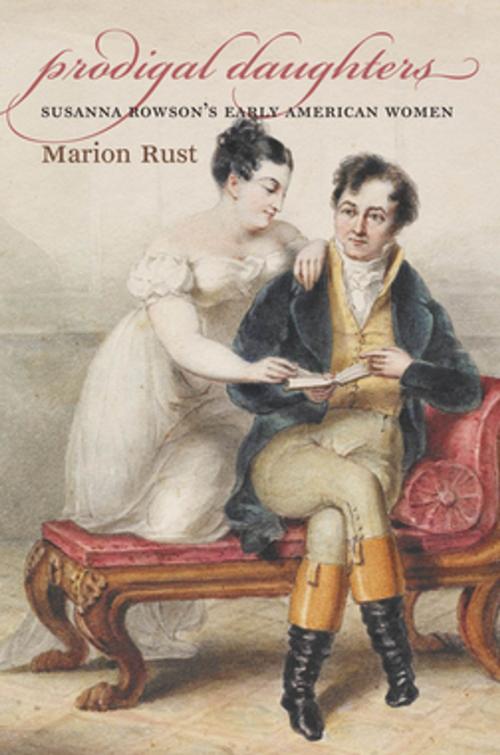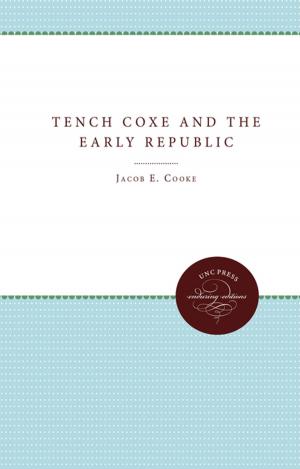Prodigal Daughters
Susanna Rowson's Early American Women
Fiction & Literature, Literary Theory & Criticism, Women Authors, Nonfiction, History, Americas, United States, 19th Century, Social & Cultural Studies, Social Science, Gender Studies, Women&| Author: | Marion Rust | ISBN: | 9780807838815 |
| Publisher: | Omohundro Institute and University of North Carolina Press | Publication: | December 1, 2012 |
| Imprint: | Omohundro Institute and University of North Carolina Press | Language: | English |
| Author: | Marion Rust |
| ISBN: | 9780807838815 |
| Publisher: | Omohundro Institute and University of North Carolina Press |
| Publication: | December 1, 2012 |
| Imprint: | Omohundro Institute and University of North Carolina Press |
| Language: | English |
Susanna Rowson--novelist, actress, playwright, poet, school founder, and early national celebrity--bears little resemblance to the title character in her most famous creation, Charlotte Temple. Yet this best-selling novel has long been perceived as the prime exemplar of female passivity and subjugation in the early Republic. Marion Rust disrupts this view by placing the novel in the context of Rowson's life and other writings. Rust shows how an early form of American sentimentalism mediated the constantly shifting balance between autonomy and submission that is key to understanding both Rowson's work and the lives of early American women.
Rust proposes that Rowson found a wide female audience in the young Republic because she articulated meaningful female agency without sacrificing accountability to authority, a particularly useful skill in a nation that idealized womanhood while denying women the most basic rights. Rowson, herself an expert at personal reinvention, invited her readers, theatrical audiences, and students to value carefully crafted female self-presentation as an instrument for the attainment of greater influence. Prodigal Daughters demonstrates some of the ways in which literature and lived experience overlapped, especially for women trying to find room for themselves in an increasingly hostile public arena.
Susanna Rowson--novelist, actress, playwright, poet, school founder, and early national celebrity--bears little resemblance to the title character in her most famous creation, Charlotte Temple. Yet this best-selling novel has long been perceived as the prime exemplar of female passivity and subjugation in the early Republic. Marion Rust disrupts this view by placing the novel in the context of Rowson's life and other writings. Rust shows how an early form of American sentimentalism mediated the constantly shifting balance between autonomy and submission that is key to understanding both Rowson's work and the lives of early American women.
Rust proposes that Rowson found a wide female audience in the young Republic because she articulated meaningful female agency without sacrificing accountability to authority, a particularly useful skill in a nation that idealized womanhood while denying women the most basic rights. Rowson, herself an expert at personal reinvention, invited her readers, theatrical audiences, and students to value carefully crafted female self-presentation as an instrument for the attainment of greater influence. Prodigal Daughters demonstrates some of the ways in which literature and lived experience overlapped, especially for women trying to find room for themselves in an increasingly hostile public arena.















